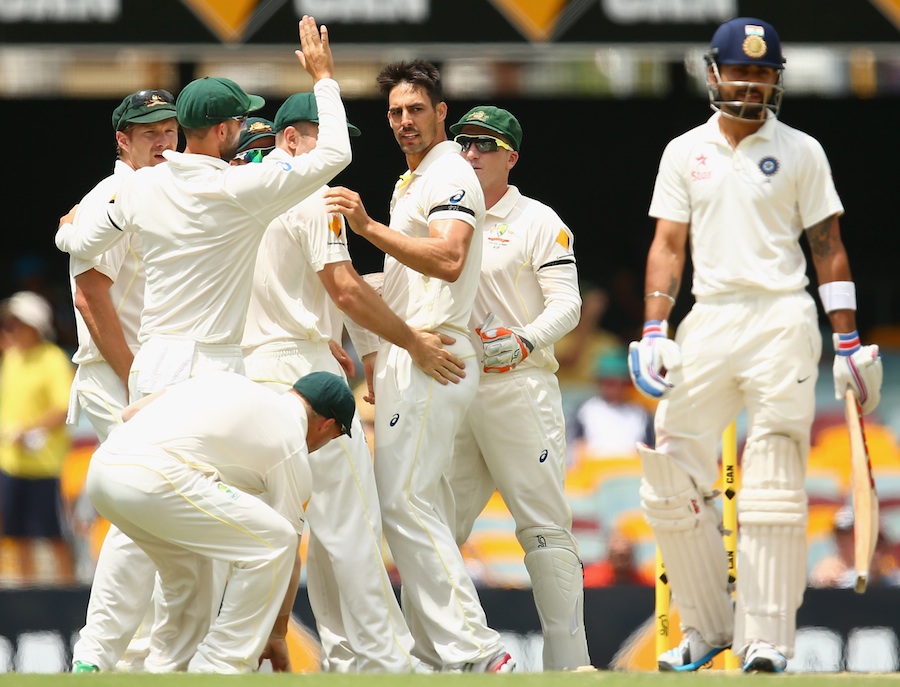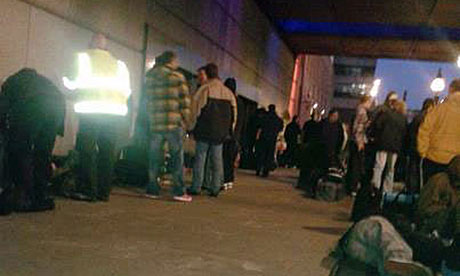As a dramatic year in cricket draws to a close, I am reminded of the great philosopher Sophocles, who wrote in Oedipus Rex: "I have no desire to suffer twice, in reality and then in retrospect." He speaks cryptically of hindsight, that priceless tool of wisdom. But to use hindsight as a convenient excuse for not being prescient is sometimes the domain of fools and knaves.
A year ago, the television coverage of the Boxing Day Test was blighted by a skit that had nothing going for it, even with the wisdom of hindsight. At the time, a long time before the tragedy of Phillip Hughes could ever have been forecast, I wrote in scathing tones about the gross stupidity of one of the world's fastest bowlers hurling bouncers at an unarmed, unskilled participant with half the Channel Nine commentary crew standing around giggling. We didn't need an accidental death to tell us that Brett Lee bowling deliberate no-balls at talk-show host Piers Morgan, following him with short balls aimed at his head as he backed away to square leg, to the cackling of Shane Warne, Michael Slater and Michael Vaughan, with Mitchell Johnson and Craig McDermott watching on is just plain negligence on the part of all parties involved. These were the same people who visited Hughes in hospital, cried at his funeral and shook their heads in disbelief at the sheer bad luck of it.
Did it not occur to them that bowling no-balls at the body of an unskilled batsman might just have ended in tragedy? Did it take the death of a skilled batsman, a professional cricketer, early on a hook shot, for all those involved with The Cricket Show to reflect on the utter inappropriateness of this stunt? This from a programme that unashamedly targets young viewers (and does it extremely well in that genre).
To be fair, you only have to read some of the comments on that article of mine to see that this brain fade wasn't the exclusive domain of these star cricketers, production staff and medicos. Clearly many of the respondents, perhaps fuelled by a dislike of Morgan, did not have the foresight to imagine the sort of injury that could so easily have befallen the batsman (if indeed that can be called "batting"). Don't believe how bad it looks in hindsight? Find Brett Lee v Piers Morgan on Youtube. Ask anyone involved in planning, executing or being a bystander to this stunt if they would be willing to participate in something similar this year, perhaps getting a speedster like Pat Cummins to try and hit another celebrity in the head (and not even having the decency to bowl from behind the white line)? Any takers for a repeat show?
A series that has showcased so much high-octane cricket in the dignified shadow of Hughes' memory doesn't deserve to be remembered for all the wrong reasons
While on the "should have known better" theme, both teams involved in the current series need to look at the so-called "banter" being exchanged. With the IPL friendships that now exist, you'd think the Indians would have worked out that it rarely works to sledge an Aussie fast bowler. Where was the upside to poking a dormant brown snake? One can understand the tactic if Mitchell Johnson had been running rampant and they were looking for anything to put him off his game. Instead, for a brief but telling period in Brisbane, they riled him to the point where he not only scored 88 and turned a sizeable deficit into a crucial lead but then came out and blasted out the Indian top order. That Rohit Sharma was in the thick of it defies belief - here's a bloke on the verge of being dropped himself, having done very little in the series, taunting Johnson about his lack of impact. The only impact we are likely to see from Rohit for the rest of the series was Hot Spot on the edge of his bat as he was fired out for nought.
Shane Watson belongs in the same camp; he is never far from a chat, but for a player who continues to polarise even the staunchest Australian fans, he might be better advised to leave the verbals alone and try to convince the nation that he is a budding allrounder - if only he could learn to bat. How much hindsight is required to convince the selectors that he is not the answer at first drop? They might work on the reverse-hindsight theory - keep giving him enough chances until he makes a score and that vindicates the selection.
The Australians, too, need to rethink their targeting of Virat Kohli. Abrasive he may be, hot-headed he is, but by Jove, the boy can bat. Baiting him doesn't work, it just brings out the mongrel in him. He had to score three hundreds this series to underscore the futility of that tactic? His habit of spoiling for a scrap, regardless of whether it's his fight or not, will see him miss a Test soon for disciplinary reasons. You don't need 20/20 vision to predict that!
Ian Chappell, who knows a thing or two about playing tough cricket, has long been cautioning the ICC about allowing the incessant chatter to get to the point where someone gets too hot under the collar and a physical confrontation leaves an indelible stain on a game that is in an awkward no-man's land after the sombre events of the recent past. It is not enough to leave it up to the players to decide where that fine line is between banter, gamesmanship and that final sledge that sparks an unseemly confrontation. The umpires in this series have been far too lax in allowing the players the latitude of walking that fine line - the palpable tension after tea on day four in Melbourne threatens to descend into open warfare unless the umpires take more control.
A series that has showcased so much high-octane cricket in the dignified shadow of Hughes' memory doesn't deserve to be remembered for all the wrong reasons. The ghosts of that ugly series in 2007-08 do not need to be dug up from their uneasy graves. This is not a lesson we need to learn, again, in hindsight.
It is probably incumbent upon the match referee to gather both teams together at close of play and remind them that some situations, like the Monkeygate affair, are too hard to retrieve if tensions run too high. It would make a mockery of all the goodwill that has flowed through the cricket community in the wake of sadness, black armbands and moving eulogies. He might do well to remind them all of this old Irish proverb: "May you have the hindsight to know where you've been, the foresight to know where you're going and the insight to know when you're going too far."


